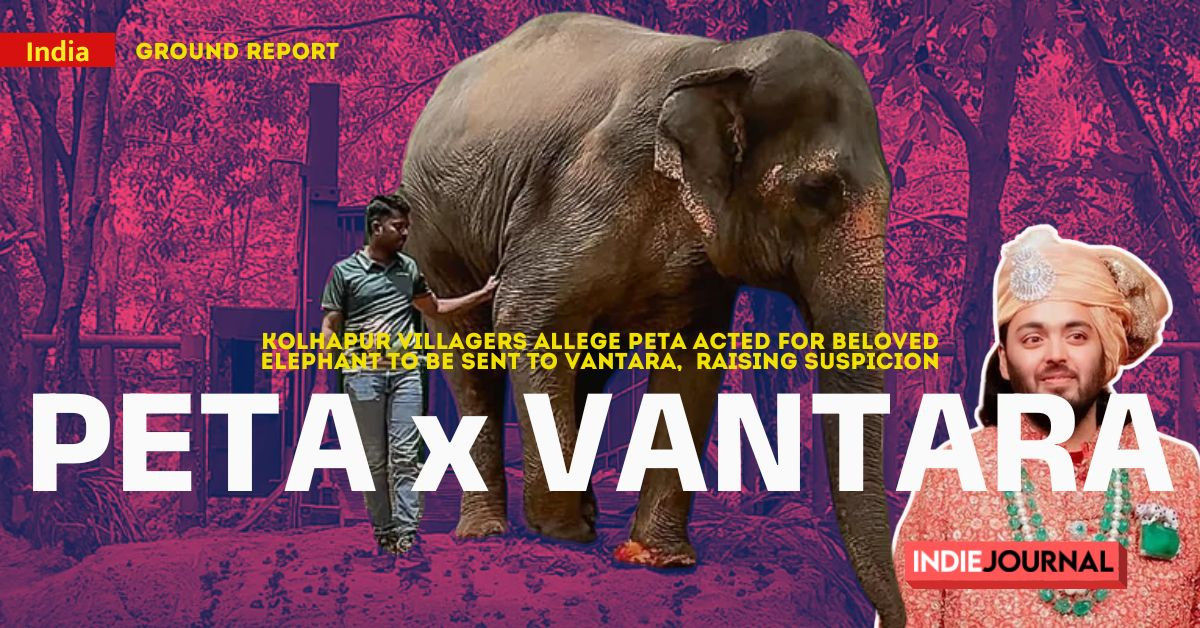India
The Kerala Story screened at FTII amid political sloganeering
Students also conducted demonstrations against the screening.

Amid demonstrations by the students' association, the controversial film ‘The Kerala Story’ was screened at the campus of Pune’s Film and Television Institute (FTII) on Saturday morning. While the screening took place despite opposition from the students, the audience, who were not students, engaged in aggressive sloganeering on campus.
The FTII Students Association (FTIISA), early on Saturday morning, issued a statement stating that a special screening of ‘The Kerala Story’ by the director Sudipto Sen was to be held in the institute today much to the dismay of many students. The screening was organised by the Mitee Film Society.
“The student community of FTII was not informed of this event, let alone asked to be part of the arranged proceedings,” the statement said.
The students' association suspected that this was to prevent any kind of protests from the students against the screening. Nevertheless, they organised a protest at 9 am, while the screening was supposed to be held at the Main Theatre in the institute at 9:30 am.

FTIISA demonstrating outside FTII Main Theatre.
“We organised a peaceful demonstration. We were not even stopping any of the people who had come to watch the film. All we did was stand outside the Main Theatre with placards against the screening in our hand. Even the police who arrived on campus allowed us to express our dissent,” said Sayantan Chakraborty of FTIISA.
However, in the middle of the screening, he recounts that a certain group from the audience began raising right-wing slogans like ‘Jai Sri Ram’ and ‘Love Jihad Ho Barbad’.
“One of the organisers was also amid those raising the slogans. A Marathi actor who was present for the screening, Yogesh Soman, was the one who instigated the whole thing. We feel this was nothing but planned propaganda on campus,” Sayantan added.
He also added that since the screening was taking place on campus, the consensus of the students should have been taken into consideration. During the sloganeering by the members of the audience, the students demanded the removal of Soman from the campus, but that did not happen.
On the other hand, while speaking to Indie Journal, Milind Lele, President of Mitee Film Society, said that the aggressiveness was totally uncalled for on the part of students and was totally against the spirit of freedom of expression.
The students also alleged that while a few of them were protesting near the backdoor of the Main Theatre, they were manhandled by the organisers. The allegations could not be verified independently by Indie Journal.
“We firmly stand against such state-backed propagation of Islamophobia in our institute. The screening of the film is all set to be celebrated by ministers and three hundred other people in attendance. We do not believe that our institute and our Main Theater, where we learn and where we thrive as students, are the right place for such a celebration,” the statement issued by the FTIISA read.
For decades, FTII has been a space known for artistic creativity and open dialogue. However, since the past few years, the students and former students feel that the right wing has tried to hijack the space. Similar allegations were made when in 2015, actor Gajendra Chauhan was appointed by the Central Government as the Chairman of the FTII Governing Council. The students had alleged that despite not having any significant accomplishments in his name, which has been the legacy of the position, he was appointed only because he was part of the BJP.
FTII has had a history of banning politically charged films bowing to student pressure in the last decade. In 2013, the members of Akhil Bharatiya Vidyarthi Parishad (ABVP) had attacked FTII students after the screening of Anand Patwardhan’s documentary Jai Bheem Comrade. The following year, the institute had cancelled the screening of Patwardhan’s Ram Ke Naam after opposition from ABVP. Again in 2018, the institute had not allowed the students to screen Hora, a film that focused on socio-economic issues through the prism of the Kabir Kala Manch, directed by then a former student. It was banned after threats were issued by the ABVP against the screening.






